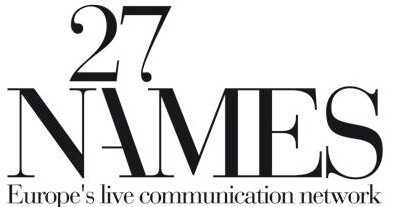Paz Barreno is copywriter at beon. Worldwide. Her work for the group consists in researching, thinking, conceptualizing, writing, synthesizing… event and advertising campaigns. This professional confesses that she looks for inspiration in their own life experiences: movies, songs, travels… Moreover, she is very clear about something: “Work, as life, has no sense without humor.”
What is the difference between an event and an advertising campaign in terms of conceptualization?
In what is expected from the addressee, audience, or recipient of the message. With an advertising campaign you seek to persuade, raise awareness, mobilize, encourage the consumption of a product, increase sales or enhance the image of a brand. In an event your goal may be any of the above, but you have a much more specific audience than the one that has an advertising campaign, and you have to make sure that each and every one of the guests enjoy, feel excited about and understand the message transmitted, and thus internalize it, be surprised by it and, in short, store it in their memory. An advertising campaign impacts, moves, gains you. An event, in addition, has to make you feel.
What do you think of during the creative process? Words, images, or concepts?
There are very useful tools such as the like-minded dictionary, but any creative stimulus is always welcome. Searching for images related to the message the client wants to convey also helps to start creating the story you want to tell at the event. However, what is most helpful is our own personal imagery, the one we create with our own daily life experiences: films, documentaries, series, songs, books, anecdotes and, of course, travels.
Do you follow a specific set of rules to create new ideas; or rather do they arise from daily happenings?
The beauty of creativity is that there is no standard methodology. There are so many processes and steps to follow as type of clients and projects. The only common ground is the starting point: to read the briefing in depth and research everything about clients to really know them, just as when we try to scrutinize a friend trying to surprise him or her with a nice present.
A resource such as humor, has an important role in your everyday work?
There are people who believe that the ideal method is to separate the personal from the professional. As I am the same person inside and outside the company, for me, work, as life, has no sense without humor. I cannot imagine what it would be like to work without my sense of humor.
How do you actually work with your creative partners? What is your actual procedure?
When I started working back then for Eventisimo, I was the only creative at the Madrid office and soon I had to get accustomed to make brainstorming sessions only with myself. Four years later, things have changed for the best: only two years ago, I met my colleagues al Sörensen, and now we are all beon. Creativity, where brainstorming are far more enriching than when I had to listen to my own voice.
As for the processes, I only have to ask and there will always be someone to contribute with new ideas, or I can pick up the phone and call any of my colleagues in Seville to contribute their bit to my craziness. We are a great team.


